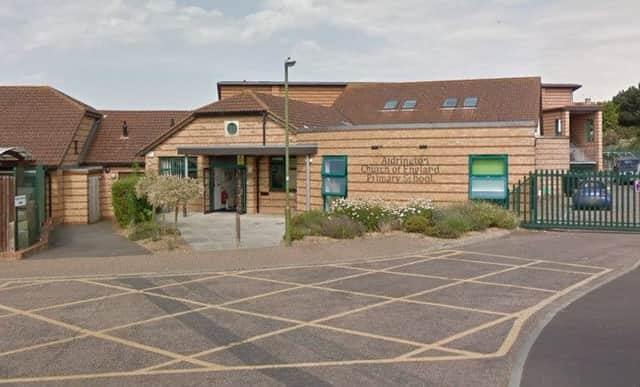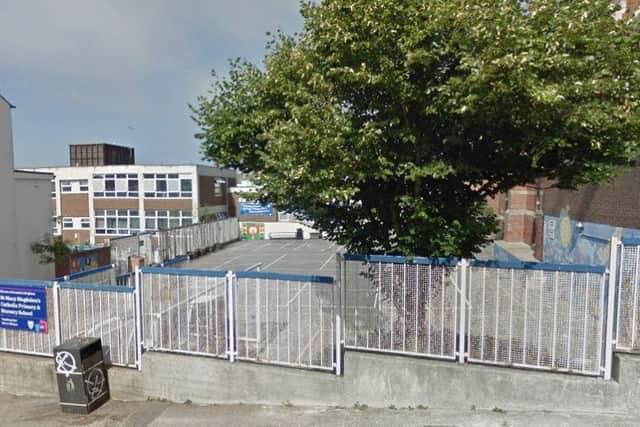Work to ‘poverty proof’ schools in Brighton and Hove


Every school in the city has been involved in the two-year project to find ways to support disadvantaged children.
Successes include providing costumes on dressing up days and support for families who struggle to pay for after school clubs and trips.
Advertisement
Hide AdAdvertisement
Hide AdMany schools give parents the chance to pay for outings in instalments.


Moulsecoomb Primary School in The Highway subsidises the trips to make sure all families can attend and Carlton Hill PTA contributes to the school budget for trips.
St Joseph’s in Davey Drive, Brighton, uses what is available locally by visiting museums in Brighton and Hove to keep the cost down.
St Mary Magdalen in Spring Street, Brighton, makes sure there is only one ‘costly’ trip each term.
Advertisement
Hide AdAdvertisement
Hide AdCardinal Newman in Upper Drive, Hove, makes sure students who may struggle to reach sporting events are provided with transport.
Boxes or buckets for charity collections are used at St John the Baptist School in Whitehawk Hill Road, the Bilingual School in The Droveway, Varndean in Ditchling Road and Cottesmore in Upper Drive so nobody knows what has been given.
The project launched two years ago involves specially trained staff in 17 schools across Brighton and Hove, as well as five council officers carrying out research by listening to children, teachers, parents and governors.
The initiatives are detailed in a report going before the Children Young People and Skills Committee on Monday, 4 March, which explains how more than 50 audits have been carried out at schools representing all areas of the city.
Advertisement
Hide AdAdvertisement
Hide AdIt found that no school visited had a system where other children could see which pupils were entitled to free school meals.
However, it said that school uniform is a more complicated area.
Primary schools have simple uniforms available from high street shops and a selection of pre-loved uniform, which makes it more affordable for parents.
A bigger issue is at the city’s secondary schools where more specific branded uniform is required.
Advertisement
Hide AdAdvertisement
Hide AdThe report said: “The situation is more complex in secondary schools and recommendations have been made to increase the amount of pre-loved uniform available.
“Some schools have recent uniform changes so there is not yet a collection that families can access.”
A suggestion put to schools is to consider whether pupils really need to buy a separate PE kit if they play in a club or team.
All schools in the city are involved with the project, either taking part in an audit, receiving a visit from a trained researcher or discussing the issues involved.
Advertisement
Hide AdAdvertisement
Hide AdIt cost £150,000, which was spent on training researchers, supply cover, developing materials and a licence with Children North East which created the programme.
The aim is to discover which school policies highlight poverty, while finding better ways of spending pupil premium cash given to schools teaching disadvantaged youngsters.
The definition of poverty used is when people “lack the resources to obtain the types of diet, participate in the activities, and have the living conditions and amenities which are customary, or at least widely encouraged and approved, in the societies to which they belong”.
March marks the end of the two-year project which is described in the report as being well-received by teachers, parents and pupils.
Councillors will give their feedback when the Children, Young People and Skills Committee meets in public at Hove Town Hall on Monday March 4 from 4pm.
S